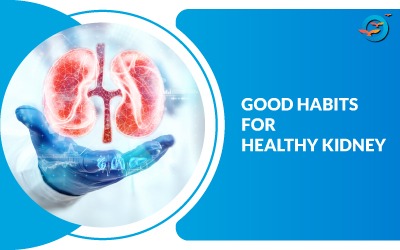Take obesity seriously as a chronic disease and don’t manage it alone

Obesity is a global health epidemic that affects millions of people worldwide. While it's often viewed as a lifestyle choice, it's crucial to recognize obesity as a chronic disease that requires comprehensive medical attention and support. Managing obesity alone can be overwhelming and ineffective, which is why seeking professional help is essential for long-term success.
Understanding Obesity as a Chronic Disease
Obesity is not merely a result of overeating or lack of willpower; it's a complex medical condition influenced by genetics, environment, and various physiological factors.
Just like other chronic diseases such as diabetes or hypertension, obesity can lead to severe health complications, including heart disease, type 2 diabetes, high blood pressure, and even certain types of cancer. Ignoring obesity can significantly reduce life expectancy and quality of life.
Why Self-Management Often Fails
Many individuals with obesity attempt to manage their condition on their own, often through crash diets or extreme exercise regimens. While these efforts might yield short-term results, they rarely lead to sustainable weight loss.
The problem lies in the multifaceted nature of obesity. It's not just about reducing caloric intake and increasing physical activity; it involves addressing underlying factors like hormonal imbalances, emotional triggers, and metabolic dysfunction.
Furthermore, the stigma surrounding obesity can create a sense of shame and isolation, making self-management even more challenging. People with obesity may face discrimination, making it difficult to access the support and resources they need.
The Importance of Professional Guidance
Recognizing obesity as a chronic disease underscores the need for medical intervention and professional guidance. Healthcare providers, including physicians, registered dietitians, and psychologists, play a crucial role in helping individuals manage their obesity effectively.
-
Personalized Treatment Plans:
Healthcare professionals can create individualized treatment plans that consider a person's unique medical history, lifestyle, and goals. These plans may include dietary recommendations, exercise programs, and, in some cases, medication or surgical options. -
Behavioral Support:
Addressing the psychological aspects of obesity is paramount. Therapists and counselors can help individuals identify emotional triggers and develop healthier coping mechanisms. Support groups and therapy sessions can also provide a sense of community and understanding. -
Monitoring and Accountability:
Regular check-ins with healthcare providers ensure progress is being made and adjustments are made as needed. This accountability can significantly increase adherence to the treatment plan. -
Education and Empowerment:
Education about nutrition, physical activity, and the science of obesity empowers individuals to make informed choices. Understanding the complexity of obesity reduces self-blame and shame. -
Long-term Success:
Obesity management is not a short-term endeavor. Professional support can help individuals achieve and maintain a healthy weight for the long haul, reducing the risk of obesity-related health complications.
Conclusion
Obesity is a chronic disease that should be taken seriously and managed with the help of healthcare professionals. Seeking support not only improves the chances of successful weight management but also addresses the physical and emotional aspects of the condition.
It's time to destigmatize obesity and provide individuals with the resources and compassion they need to lead healthier, happier lives. Don't go it alone; there is help available to tackle obesity as the chronic disease it truly is.
Freedom from Diabetes comprehensively recognizes the complexities of obesity, acknowledging it as a chronic condition. This understanding has resulted in a significant success, with over 500,000 kilograms shed collectively.
We invite you to participate in our introductory webinar, "Discover Reversal Session," to gain insights into the appropriate approach to reversing diabetes and obesity.
Embark on your sustainable path towards reversing diabetes and obesity by enrolling in our annual Holistic Transformation Program.

